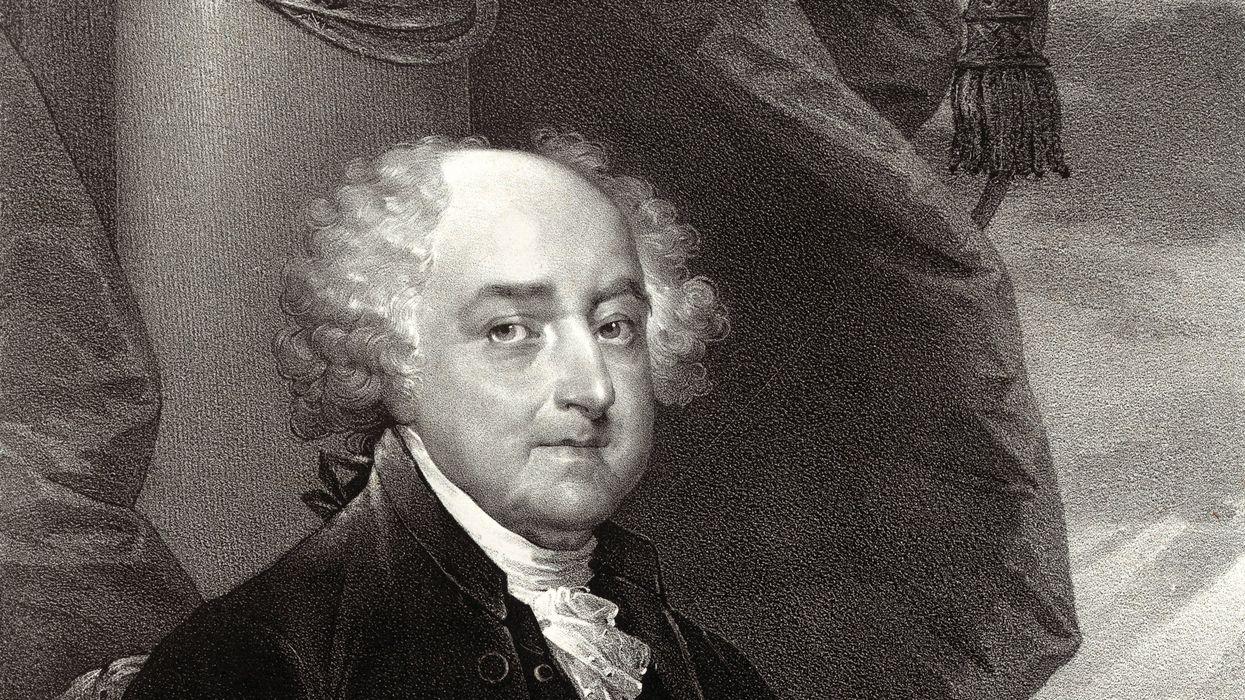Anderson edited "Leveraging: A Political, Economic and Societal Framework" (Springer, 2014), has taught at five universities and ran for the Democratic nomination for a Maryland congressional seat in 2016.
Elizabethtown College historian David Brown's brilliant 2016 book, “Moderates: The Vital Center of American Politics, from the Founding to Today,” makes the case that a distinguished middle position between two dominant parties has played a major role in American history. Centrism is not a recent concept, but its role in American history, Brown contends, has been missed by historians, the media, politicians and the public alike.
For over a hundred years, American politics has had the modern Democratic and Republican parties; in the late 18th and early 19th centuries, we had the Jeffersonian Democratic-Republican and Hamiltonian Federalist parties, although the Jeffersonian Democrats were not the forerunners of the modern Democratic Party. In the 18th, 19th, and 20th centuries, major figures advanced the centrist point of view, most notably John Adams, Abraham Lincoln, Theodore Roosevelt and Bill Clinton.
Centrism is also associated with the philosophical tradition of American pragmatism, which – according to Louis Menand's Pulitzer Prize winning book “The Metaphysical Club” – arose out of the "distrust for absolutes" associated with the Civil War. The three classical pragmatists were scientist and philosopher Charles Sanders Peirce, psychologist and philosopher William James and John Dewey, widely regarded as America's greatest philosopher. He was also a prolific public intellectual.
Avoiding extremism and favoring pragmatic practical solutions to what Dewey always called "the problems of men" rather than "the problems of philosophers" is the defining feature of pragmatist philosophy. Pragmatists rejected what Dewey called the "Quest for Certainty" in his 1929 book of that name along with simplistic dualisms like mind/body, fact/value and knowledge/reality as well as the Cartesian individualist standpoint for obtaining knowledge.
A centrist political perspective initiated by John Adams is, according to Brown, also associated with a pattern of thinking that is "independent" from the two major parties – and the concept of political parties themselves. As Brown explains, Adams' independent perspective grew out of his not being at home in either the Jeffersonian or Hamiltonian camps. Neither a pure individualist nor an advocate of a centralized federal government, Adams was a man of fierce independence and individual conscience, profound patriotism and intense passion.
Adams, the most forceful voice for revolution and declaring our independence at the Second Continental Congress in Philadelphia, is rarely invoked as an inspiring founding father who can guide us in our politics. Yet he is actually ideally suited to guide us away from the aim of finding bipartisan solutions to our pressing problems. In its place, the Adams point of view would have us search for tripartisan solutions. And it is Adams' independent, anti-party frame of mind that would point us in the direction of expanding the role of independent politicians in our politics.
Overcoming the ceaseless and frequently fruitless battle between the two major polarized parties can best be achieved not with a third party but with a group of fierce, innovative, committed independents. These independent politicians would leverage their voices and indeed their departure from the two parties to accomplish compromise, synthesis legislation that the two parties have been unable to accomplish on major issues of immigration, taxation, gun safety, paid parental leave and child care, energy, entitlement reform, the national debt, and climate control.
Charles Wheelan was in the ballpark of reaching this conclusion in his 2013 book, “The Centrist Manifesto,” where he argued for a "fulcrum strategy" in which five to six moderate senators who were members of a Centrist Political Party would provide the majority party with the votes it needed to get to 60 votes and pass major policy bills. I take a pass on a third party. Yet I think that a group of independents – who will rely on structural election reforms like ranked-choice voting and open primaries to get elected – from diverse ideological standpoints could do the work. They will be motivated to work together in order to maintain their jobs as senators.
Tripartisanship, not centrism as such, is the solution to our woes. For centrism defines a political point of view for a political party, but tripartisanship defines a concept for resolving practical policy problems that must transcend the two-party framework. If we relearn the importance of John Adams' thought and leadership along with the entire centrist tradition, we will be able to discover not only the roots of centrism and pragmatism in American political and intellectual life but the basic elements of a point of view that replaces the tired goal of bipartisanship with the intriguing goal of tripartisanship.




















Trump & Hegseth gave Mark Kelly a huge 2028 gift